Another Finetune playlist. It looks like we’re pulling out of the blahs for right now, but it’s still a good month to die. Hang in there! Listen to music!
Playlist…after the jump…
Another Finetune playlist. It looks like we’re pulling out of the blahs for right now, but it’s still a good month to die. Hang in there! Listen to music!
Playlist…after the jump…
I’m trying to make this thing as much like a virtual sketchbook/scrapbook/notebook as I can, and avoid the regular trappings of blogging, like long link rolls and book reviews. (Even though I like those trappings on other blogs.) However, if you want that stuff, check out the del.icio.us and LibraryThing feeds on the sidebar.









Trying my best to copy Don, I bought an espresso machine and started playing around with LibraryThing. It’s my day off, so I’m going to spend it on caffeine, reading like a madman, and blogging like crazy to make up for the severe lack of posts lately. Stay tuned.
As for the reading: In addition to being a National Book Award nominee, Gene Yang did his master’s thesis on comics and education. Dover Thrift has some really cheap, really amazing art books. Joann Sfar is one of the best men in comics, period. McCarthy’s new book is dark, depressing, and beautiful — like his last one, I think it’s basically a pulp novel, begging to be made into a movie. Saul Steinberg is January’s greatest (re)discovery. Arnheim’s book is on Tufte’s reading list, so I’m down.
“Science and art have in common intense seeing…” – Edward Tufte
This is a mind map I did while reading Edward Tufte’s new one, Beautiful Evidence. I’ve been interested in this kind of “radial” note-taking ever since I read about “clustering” in one of Janet Burroway’s books on fiction. Graphic facilitators (like the cartoonist Drew Dernavich) do glorified doodling like this for a living.
Beautiful Evidence is, like all of Tufte’s previous books, fantastic. I enjoyed the chapters on picture/word integration and PowerPoint the best. The great thing about Tufte is the primary sources he uses, and in this book, he quoted everything from Galileo’s Starry Messenger, to a guide to spotting a concealed handgun, to Martin Amis’s The War Against Cliche.
Tufte’s sources come from all disciplines: his books are the most inherently integrated and interdisciplinary I’ve ever read. He also draws from great literature. In his Envisioning Information, he quoted from Italo Calvino’s Six Memos For The Next Millenium, which I’ve been hot for all year:
My working method has more often than not involved the subtraction of weight. I have tried to remove weight, sometimes from people, sometimes from heavenly bodies, sometimes from cities; above all I have tried to remove weight from the structure of stories and from language….Maybe I was only then becoming aware of the weight, the inertia, the opacity of the world — qualities that stick to writing from the start, unless one finds some way of evading them.
In other news, I had my first wedding anxiety nightmare last night, so you know it’s getting close. (Meghan’s been having them for weeks now.)
10 great books I read, in descending order:
 Soccer In Sun and Shadow
Soccer In Sun and Shadow
by Eduardo Galeano
The ultimate bathroom reading. Short, smart, prose-poem chapters about soccer. Picked it up because Barry Yourgrau (another good bathroom read) recommended it. Became an instant fan.
 Making Comics
Making Comics
by Scott McCloud
Not as good as Understanding Comics, but way better than Reinventing Comics. Any McCloud release is an event. Thrilled to see a chapter on world-building in there. Will make a good textbook someday.
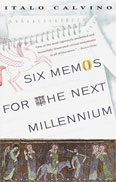 Six Memos For The Next Millennium
Six Memos For The Next Millennium
by Italo Calvino
Intended as lectures, Calvino died before he could give them. The first five, Lightness, Quickness, Exactitude, Visibility, and Multiplicity, were written. The sixth, Consistency, was not. A hell of a collection of last words from a hell of a writer.
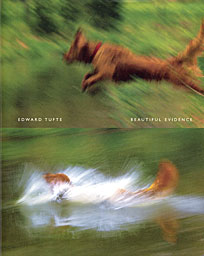 Beautiful Evidence
Beautiful Evidence
by Edward Tufte
The fourth of Tufte’s books, contains his devastating pamphlet on Powerpoint, which should be required reading for everyone. Come to think of it, all of his books should be required reading — in the age of pictures and words, they could take the place of freshmam composition…
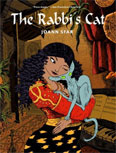 The Rabbi’s Cat
The Rabbi’s Cat
by Joann Sfar
The Rabbi’s cat swallows a parrot and announces his ambition to learn the Torah. Loose, wonderful drawings, a no-nonsense structure, and a great story. Didn’t get to read Sfar’s Vampire Loves, but that looks excellent too.
 Mother Night
Mother Night
by Kurt Vonnegut
Gallows humor, anyone? Picked this up because I read that it was Etgar Keret’s favorite Vonnegut. Devoured it in one sitting during a sunny afternoon on our balcony.
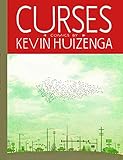 Curses
Curses
by Kevin Huizenga
I haven’t actually put my hands on the Curses collection (it’s on the xmas list), but when I was at Quimby’s in Chicago, I bought every Huizenga comic they had, and after that, ordered everything available through USS Catastrophe (including his great booklet for the Center for Cartoon Studies). Along with the stuff available online, I’ve read a good bit of what’s gonna be in the book. His blog is great, too.
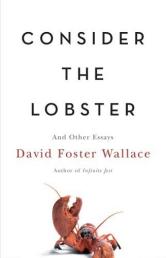 Consider The Lobster
Consider The Lobster
by David Foster Wallace
“I don’t know a whole lot about non-fiction journalism, but the way i think about [it] in terms of what I can do is: I think of it as a service industry. Essays like this are occasions to watch somebody reasonably bright but also reasonably average pay far closer attention and think at far more length about all sorts of different stuff than most of us have a chance to in our daily lifes…”
Brilliant dude, brilliant essays. Still haven’t read a bit of his fiction.
 Fun Home
Fun Home
by Alison Bechdel
A story that couldn’t be told in any other form than a comic book. I loved meeting Alison, and her Powerpoint presentation about the “making of” made the book seem even more brilliant. Best book published this year, hands down.
Cruddy
by Lynda Barry
Next to getting married, meeting Lynda Barry and hearing her read from Cruddy was probably the event of my year. To me, Lynda is the perfect model of a writer and an artist. This book is just too cool for words.
This site participates in the Amazon Affiliates program, the proceeds of which keep it free for anyone to read.